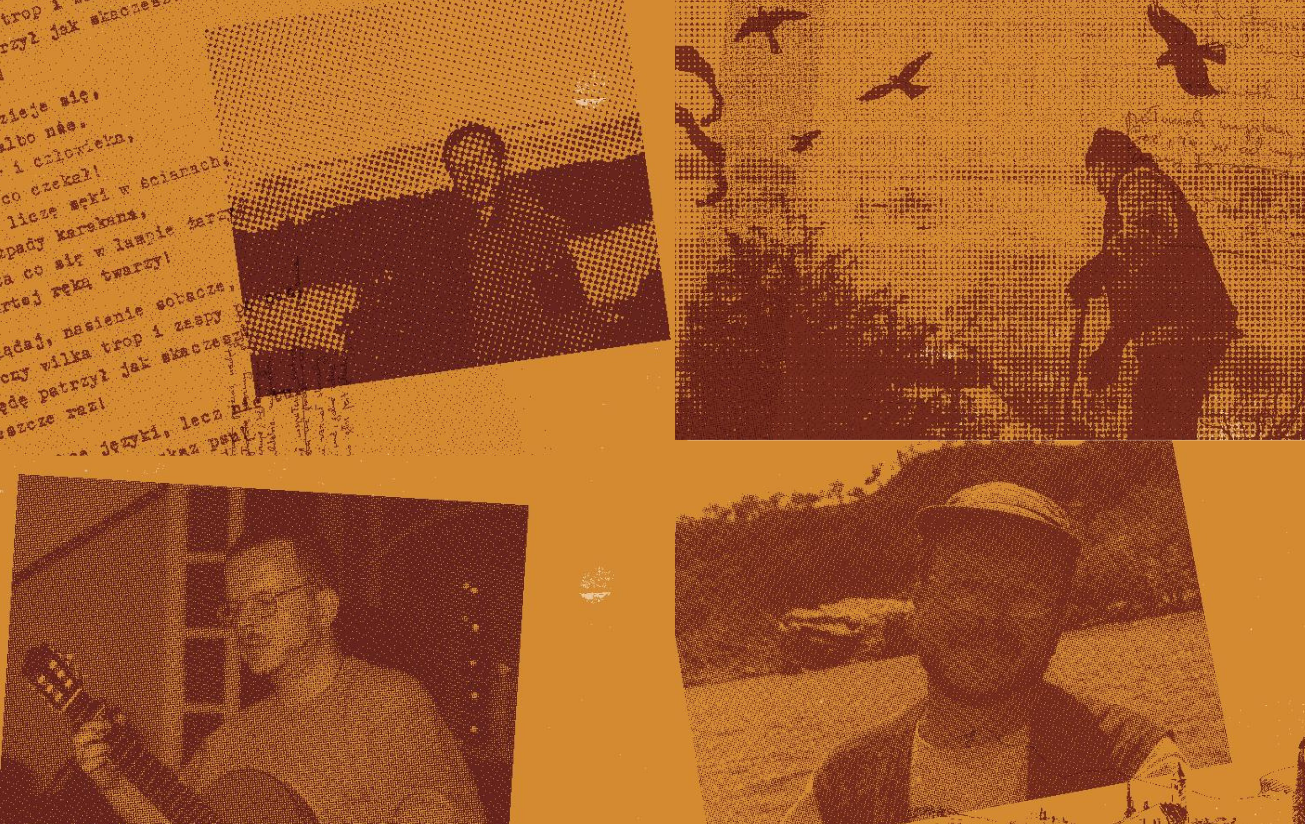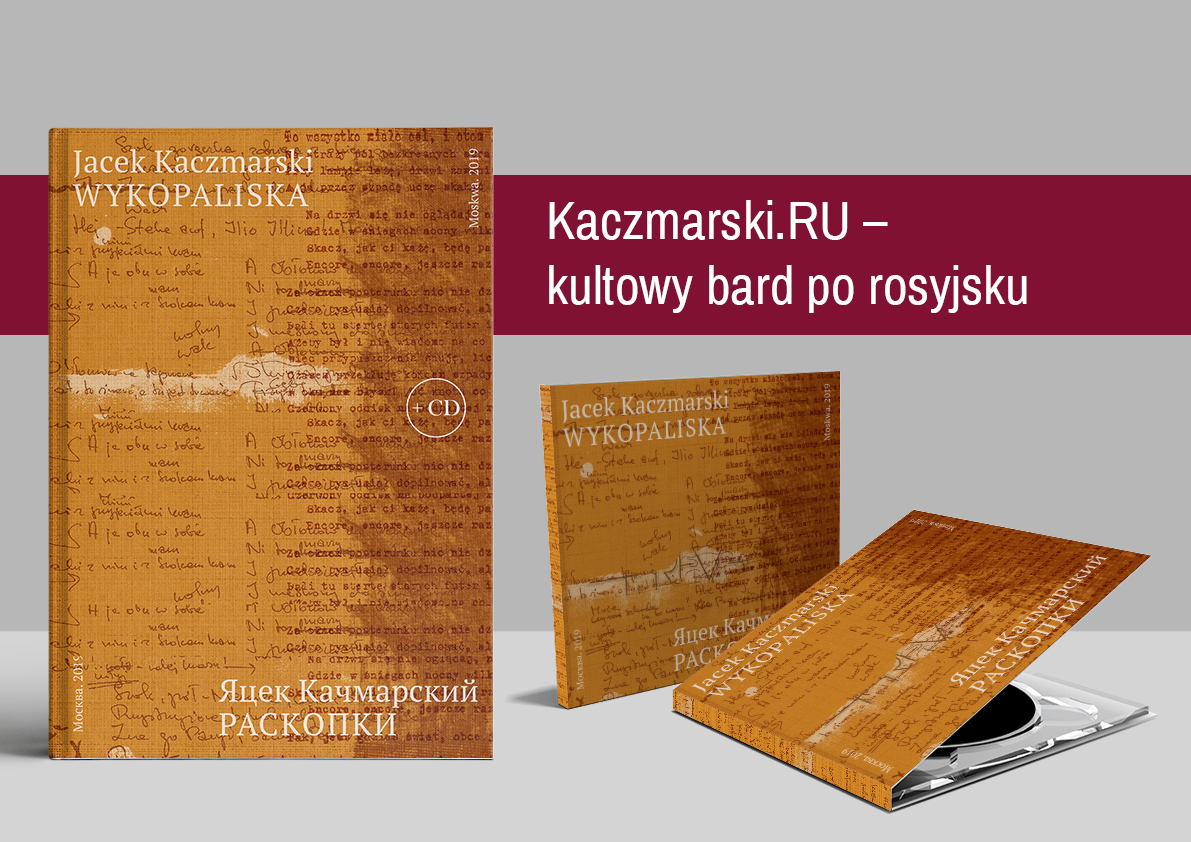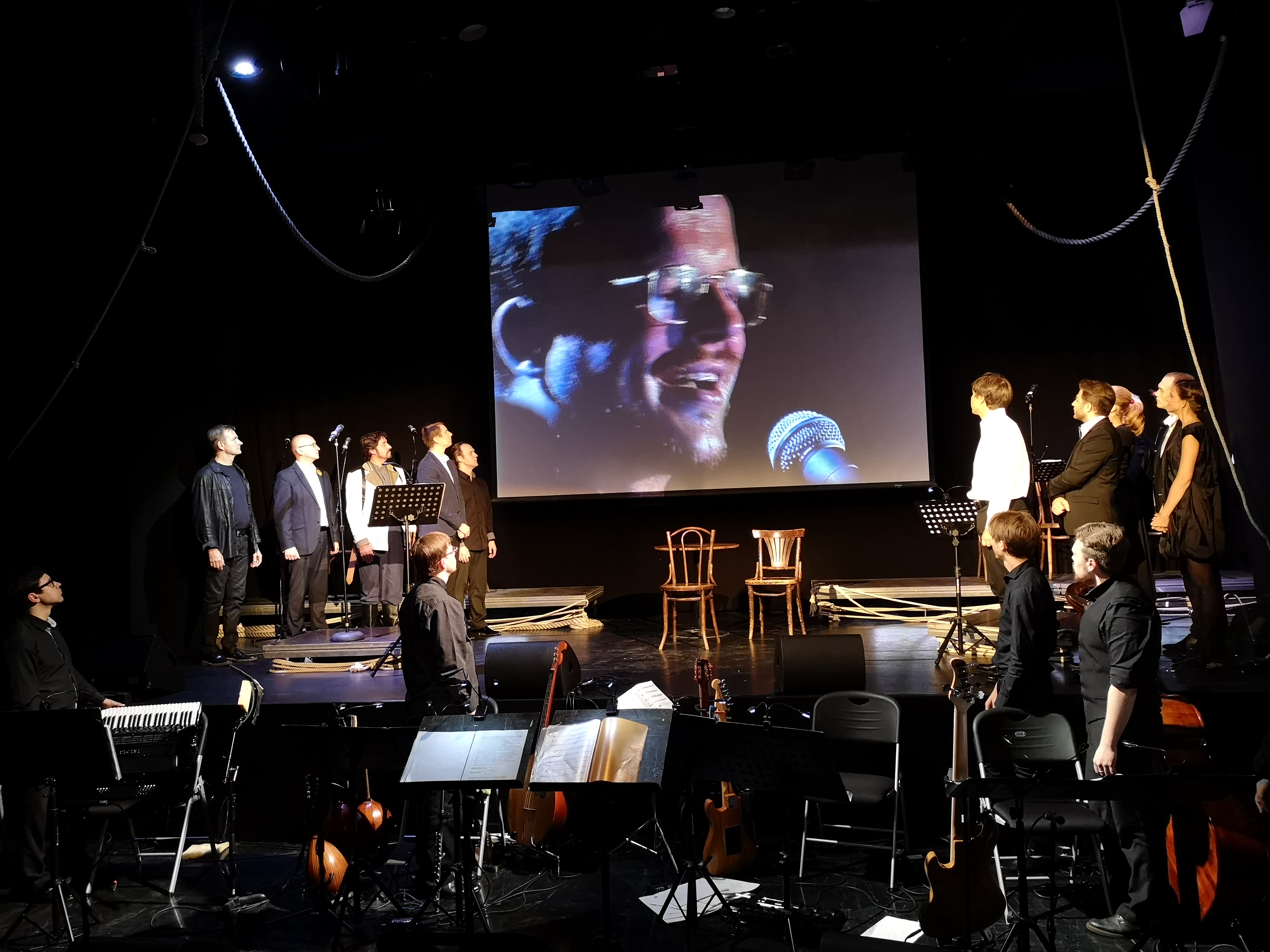Jacek Kaczmarski is an exceptional character, a classic of Polish bard songs, the voice of the "Solidarity" generation, who was at the same time strongly influenced by Russian culture and inspired by it. The latest project of the Centre – Kaczmarski.RU is aimed at bringing this extraordinary figure and his work closer to Russian society and encouraging Poles to take a fresh look at his work.

How do Jacek Kaczmarski's songs sound in Russian? What happens when we switch his classic interpretations with his characteristic voice and tearing guitar with a band of 8 musicians and 6 actors? How does an electric guitar sound in the "Epitaph for Vysotsky", and how an Orthodox choir in "Rublev"?
We invite you to participate in this unique event! The latest project of the Centre for Polish-Russian Dialogue and Understanding Kaczmarski.RU concentrates on the Polish icon, "the voice of Solidarity", the national bard Jacek Kaczmarski. It is impossible to focus on all of the artist's extremely rich artistic accomplishments, which is why we narrowed it down to the part of his work that is strongly related to Russia. Not only to make it possible for our neighbors to get to know "our Vysotsky", but also to look at Kaczmarski as a character in whom the ambiguity of Polish-Russian relations reflects as if in a mirror. "I am simply a Russophile-anti-communist," as Kaczmarski liked to say, at the same time being very closely connected with Russian culture.

Find out more about Excavations (here).
The Kaczmarski.RU project, however, aims not only at making it possible for the Russian-speaking audience to get to know the "Polish Vysotsky", but also to encourage them to look at Kaczmarski as a character in whom the ambiguity of Polish-Russian relations reflects as if in a mirror. "I am simply a Russophile-anti-communist," as Kaczmarski liked to say, at the same time being very strongly connected with Russian culture. He translated a camp ballad "Czarne suchary" [Black rusks]. A Tarkovsky's film impressed him to such an extent that he wrote a poem "Rublow" [Rublev], Basing on Fedotov's picture, he created a song ingrained in the Russian mentality, "Encore, jeszcze raz" [Encore, once again]. One of Kaczmarski's last literary comments on Russia was a song " Obłomow, Stolz i ja" [Oblomov, Stolz and I] (2001), which was based on Goncharov's novel. As the poet explained, this is a comparison of "the image of a Russian man and Russia of the 19th century with Western Europe of that time."
Therefore, we encourage you to listen to those songs in Russian, additionally in completely new arrangements. The actors of Moscow's Teatrium Na Serpukhovke present bold and unusual interpretations of songs that are classical for Poles. We encourage you to approach the "Obława" [Manhunt], "Zbroja" [Armour] or "Rublev" with full openness. We suggest to listen closely to these songs once again, and then, perhaps, to look for new areas for a Polish-Russian dialogue on topics that both bind us and divide us. To set off for the excavations (as the title suggests) and look for the "gold chips" in the seemingly difficult matter, especially in today's socio-political circumstances. "We continue to insist softly, that those are not ruins, but - foundations."
#KaczmarskiRU #kluczdodialogu #keytodialogue
